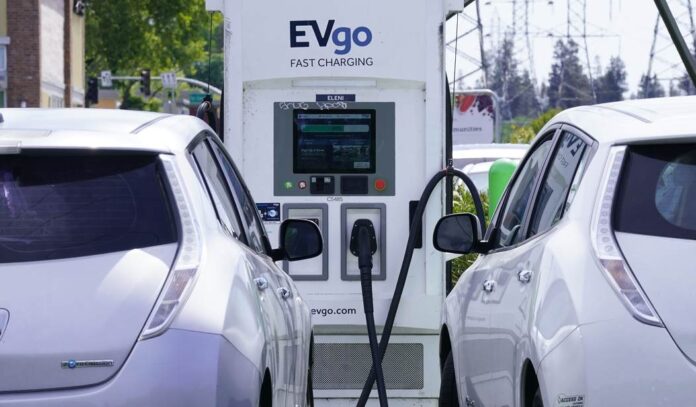Yet another electric vehicle (EV) company has fallen on hard times.
California-based Rivian Automotive Inc. has had a tough week after announcing plans to cut 10 percent of its workforce and lower production targets amid a significant decline in demand for such vehicles.
The news also sent its stock plummeting by 25 percent on Thursday, marking the worst day of trading in the company’s history.
“Our business is not immune to existing economic and geopolitical uncertainties, most notably the impact of historically high interest rates, which has negatively impacted demand,” Rivian CEO RJ Scaringe said on an earnings call on Wednesday.
The Los Angeles Times reported:
Rivian’s trucks and sport utility vehicles certainly command attention — the sleek design and outdoorsy features got investors, analysts and the public excited about its potential. The company, which counts Amazon as an investor, blew the roof off during its initial public offering of stock in 2021, ending its first day of trading valued at nearly $88 billion.
But the average car buyer probably is not able to afford the price points of Rivian’s current slate of vehicles — the company’s R1T electric pickup truck starts at nearly $70,000, while its R1S SUV starts at almost $75,000. The company, which is not yet profitable, reported a net loss of $1.52 billion for the three-month period that ended Dec. 31, compared with $1.72 billion during the same period a year earlier. Much rides on the company’s plan to produce its more affordable R2, which will debut in March, but won’t start mass production until 2026.
The automaker’s troubles did not escape scrutiny on social media:
A simple $100 million ad campaign could restore them to an $150 billion valuation.
— Whole Mars Catalog (@WholeMarsBlog) February 22, 2024
Also, RJ needs to stop tweeting about politics. https://t.co/LhaZfn2Rqr
With the possible exception of Elon Musk’s Tesla, Rivian’s struggles are being felt across nearly the entire EV market, with numerous auto manufacturers downgrading their expectations in response to a significant fall in demand.
Earlier this week, The New York Times reported that the Biden administration was scrapping its EV production targets in an apparent “concession” to automakers and labor unions.
The Times noted:
Instead of essentially requiring automakers to rapidly ramp up sales of electric vehicles over the next few years, the administration would give car manufacturers more time, with a sharp increase in sales not required until after 2030, these people said. They asked to remain anonymous because the regulation has not been finalized. The administration plans to publish the final rule by early spring.
The change comes as President Biden faces intense crosswinds as he runs for re-election while trying to confront climate change. He is aiming to cut carbon dioxide emissions from gasoline-powered vehicles, which make up the largest single source of greenhouse gases emitted by the United States.
There are many possible explanations for the underperformance of EVs, although perhaps the biggest issue is that they are not living up to their promise of being cheaper to run than traditional gas-powered cars. Until the costs of running EVs can be driven down, there may still be a lot of pain to come.




